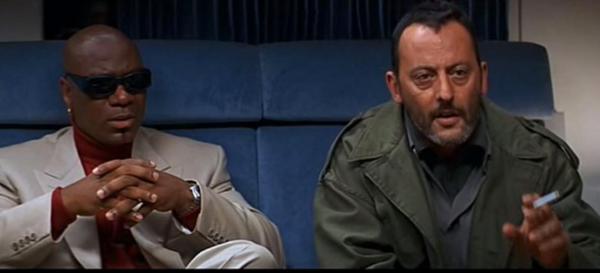 Sean Witzke posted a brief riff on Brian De Palma's Mission: Impossible to his Supervillain Tumblr last May:
Sean Witzke posted a brief riff on Brian De Palma's Mission: Impossible to his Supervillain Tumblr last May:"De Palma does this amazing thing where he does the Kurosawa show-the-plan-first-in-minature but he reverses it to make it work in a spy movie where they misdirect you by telling you all the obstacles they are about to run through, but he does it by having detailed a third element buried in the telling, where the guy who works at the computer is a pawn in the narrative. And he gets beaten up as the story moves forward, just to show how callous the heroes are. It’s all games, and Hunt actually describes it as a game first. I really love how smart/aware it is for a movie that doesn’t need to be anything but set pieces.
"The movie was regarded, at release, as hackwork. Set pieces strung together by multiple writers and directed by a technician, because of the massive massive push behind it at the time. But it functions at such a high level not only as a spy story - full of reversals, nasty violence, huge scope, intimate details, personal stakes, heists, and of course flashy set pieces - but also as a De Palma movie. His themes of surveillance, misinformation, close-up violence, betrayal, visually literalizing narrative complexity, all of them wrapped around the structure of a massive summer blockbuster. The other Mission Impossible movies (all of which I do love in various ways) are Cruise doing Bond, but Mission Impossible is De Palma figuring out how to do his best tricks for the bleachers."



